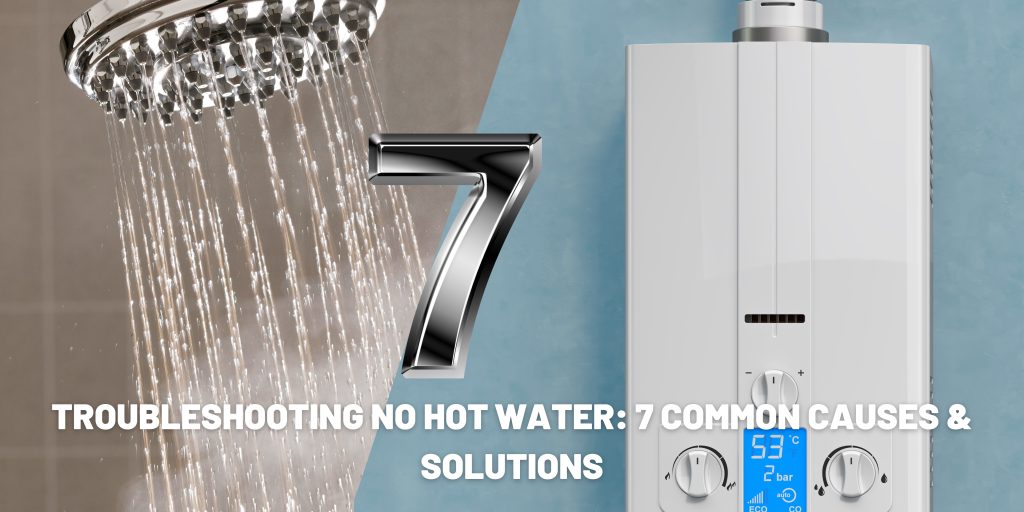- Serving Our NJ Neighbors 24/7 (888) 333-2422
Seven Most Common Causes of No Hot Water

Experiencing the jolt of a cold shower or finding your faucet devoid of hot water can be a frustrating ordeal. But fear not! Understanding the root causes of this common issue is the first step toward restoring your supply of soothing hot water. Here, we explore seven potential reasons behind the absence of hot water and offer actionable solutions to help you reclaim those warm showers you deserve.
So No Hot Water? Here’s Why:
1. Gas Leak
For those with gas water heaters, a potential culprit for the lack of hot water could be a gas line leak. If you detect the distinct odor of rotten eggs, it’s crucial to take immediate action:
– Shut off the gas valves in your home.
– Refrain from toggling any electrical appliances.
– Avoid smoking or using open flames.
– Ventilate your space by opening doors and windows, then evacuate the building.
– Contact the fire department and your utility provider promptly.
– Never attempt to repair a gas line on your own.
2. Gas Valve Failure
Gas valve issues are a common cause of hot water problems in gas water heaters. Start by inspecting the gas inlet valve and supply tube for leaks. If all seems secure, check the gas valve positioning and ensure the gas is turned on. If the pilot light is functional yet hot water remains elusive, the gas supply may be restricted, necessitating a potential replacement. Seek assistance from a reputable plumbing professional for expert guidance.
3. Pilot Light Outage
For older gas water heaters, a malfunctioning pilot light can spell trouble. If the pilot light is extinguished, hot water won’t flow. Refer to your unit’s manual to ascertain if it features a pilot light or alternative ignition system. If relighting the pilot light is necessary, exercise caution and consider seeking professional assistance.
4. Thermostat Issues
A properly calibrated thermostat is essential for consistent hot water supply. Check that your thermostat is set within the optimal range of 120 to 140 degrees Fahrenheit. Additionally, inspect for any tripped high-temperature cutoff switches, a common culprit for hot water disruptions. If the thermostat is defective, replacing it may be the most effective solution.
5. Sediment Accumulation
Accumulated sediment at the bottom of your water heater tank can hinder heating efficiency and lead to insufficient hot water. Regular tank flushing, especially in areas with hard water, can help prevent sediment buildup. If sediment-related issues persist, professional cleaning or tank replacement may be necessary.
6. Electric Water Heater Faults
Even electric water heaters can encounter issues, such as faulty connections or tripped breakers. Check for any loose connections and reset tripped breakers at the electrical panel. If the problem persists, malfunctioning heating elements may be to blame. Consider replacing the unit if it’s nearing the end of its lifespan.
7. Undersized Water Heater
An undersized water heater may struggle to meet your household’s hot water demands, resulting in inadequate supply. If you frequently run out of hot water, upgrading to a larger tank or exploring tankless water heater options could provide a more efficient solution.
If you’re grappling with hot water woes, don’t hesitate to reach out to Service Experts Heating, Air Conditioning & Plumbing. Our team of expert technicians is committed to delivering prompt, affordable solutions to all your plumbing needs, ensuring you enjoy reliable access to hot water when you need it most.





